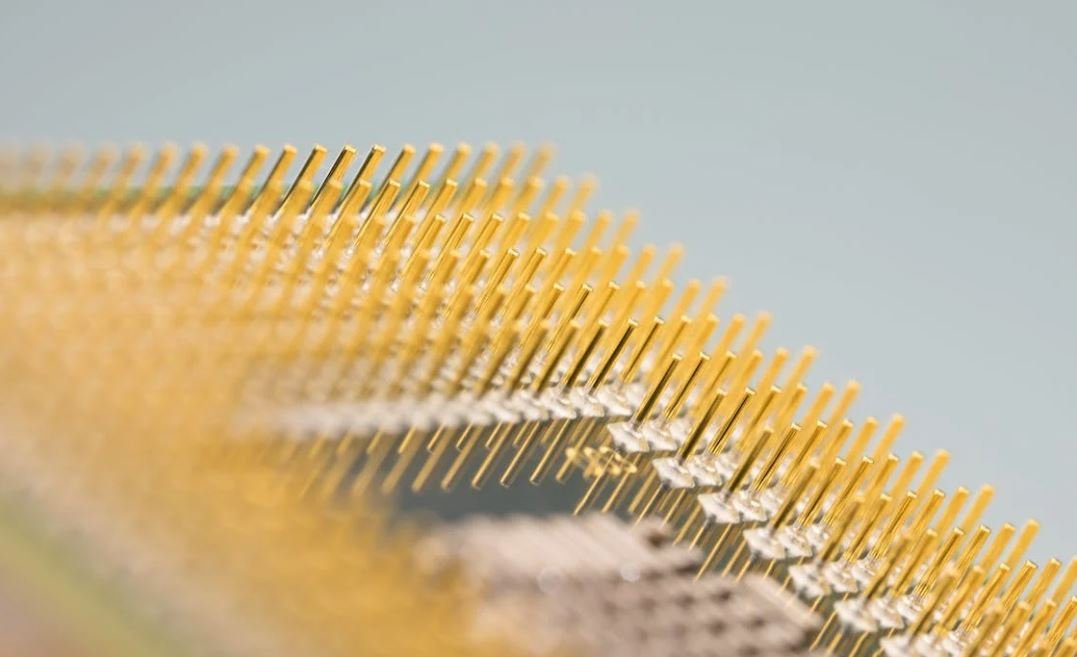AI Chip Manufacturing
Artificial Intelligence (AI) has become an integral part of various industries, leading to a surge in demand for AI chips. AI chips, also known as AI accelerators or AI processors, are specialized hardware designed to efficiently run AI algorithms. As the demand for AI continues to grow, chip manufacturers are investing heavily in developing and producing high-performance AI chips. In this article, we will explore the fascinating world of AI chip manufacturing and delve into the key aspects of this evolving industry.
Key Takeaways
- AI chips are specialized hardware designed to run AI algorithms efficiently.
- Chip manufacturers are investing heavily to meet the increasing demand for AI chips.
- AI chip manufacturing involves complex processes and requires advanced technologies.
- The market for AI chips is highly competitive, with both established players and emerging startups.
- The future of AI chip manufacturing holds promise for improved performance and energy efficiency.
The Complexity of AI Chip Manufacturing
Manufacturing AI chips entails a complex process that combines semiconductor fabrication with AI-specific optimization techniques. AI chips require a combination of processing units, memory, and specialized circuits to handle the unique requirements of AI algorithms. The design and manufacturing of AI chips involve advanced technologies such as nanometer-scale lithography, wafer fabrication, and advanced packaging. *Developing an AI chip requires careful consideration of the balance between performance and power consumption to ensure optimal efficiency*.
Key Processes in AI Chip Manufacturing
AI chip manufacturing encompasses several key processes, each playing a crucial role in the final product’s performance. These processes include:
- Design: This phase involves the design of the AI chip, including the architecture, layout, and functionality. It requires expertise in AI algorithms, digital design, and system integration.
- Fabrication: The fabrication process involves the actual manufacturing of AI chips on silicon wafers through various semiconductor manufacturing techniques, such as photolithography, deposition, etching, and doping. Each step requires precision and control to create the intricate layers of the chip.
- Testing: After fabrication, AI chips undergo thorough testing to ensure their functionality and performance. This includes checking for defects, verifying circuit functionality, and analyzing power consumption.
- Assembly and Packaging: In this stage, the chips are assembled onto substrates and packaged to protect them from external influences. It involves wire bonding or flip-chip techniques, where the chips are connected to the package and external connections are added.
The Competitive Landscape of AI Chip Manufacturing
The market for AI chips is highly competitive, with both established companies and emerging startups vying for a leading position. Notable players in the industry include Intel, NVIDIA, AMD, and Qualcomm. These companies possess extensive experience in chip manufacturing and have introduced high-performance AI chips for various applications. However, several startups, such as Cerebras Systems, Graphcore, and Habana Labs, have also entered the market with innovative approaches and specialized AI architectures. *The competition drives innovation and pushes the boundaries of AI chip capabilities*.
Interesting Data Points
| Year | Global AI Chip Market Size |
|---|---|
| 2018 | $4.27 billion |
| 2019 | $6.64 billion |
| 2020 | $8.35 billion |
The global AI chip market has been experiencing significant growth, with a compound annual growth rate (CAGR) of over 40%. This growth is fueled by the increasing adoption of AI across various sectors, including healthcare, automotive, and finance.
| Company | Main AI Chips |
|---|---|
| Intel | Movidius, Nervana, Habana |
| NVIDIA | Tensor Core GPUs |
| AMD | Radeon Instinct GPUs |
Some of the major players in the AI chip market and their main offerings are listed above. These chips provide the necessary computational power for AI applications and are widely used in deep learning and neural network training.
| Company | AI Chip Product | Top Features |
|---|---|---|
| Cerebras Systems | CS-1 | Largest chip with billions of transistors |
| Graphcore | GC200 | Specialized IPU architecture for high parallelism |
| Habana Labs | Gaudi | Efficient training and inference with high throughput |
The Future of AI Chip Manufacturing
The future of AI chip manufacturing holds exciting prospects for improved performance and energy efficiency. manufacturers are exploring emerging technologies such as quantum computing, neuromorphic engineering, and optical computing to further enhance AI chips’ capabilities. As AI algorithms become more complex and demand for AI accelerators continues to rise, researchers and engineers are pushing the boundaries of what AI chips can achieve. *The relentless pursuit of innovation drives the evolution of AI chip manufacturing*.

Common Misconceptions
Misconception 1: AI chips can replace human intelligence
One common misconception about AI chip manufacturing is that these chips have the ability to completely mimic or replace human intelligence. This is not the case as AI chips are designed to perform specific tasks based on pre-programmed algorithms. They are highly efficient at processing and analyzing data, but they do not possess the cognitive abilities or emotional intelligence that humans have.
- AI chips are designed for specialized tasks, such as image recognition or natural language processing.
- They do not possess human-like consciousness or understanding of context.
- AI chips require training on large datasets to perform well, and their performance is limited to the data they are trained on.
Misconception 2: AI chip manufacturing is only useful for tech companies
Another misconception is that AI chip manufacturing is only relevant to tech companies. While it is true that tech companies heavily invest in AI chip research and development, the applications of AI chips extend far beyond the tech industry. Industries like healthcare, automotive, finance, and agriculture can benefit greatly from the use of AI chips in improving efficiency and decision-making processes.
- AI chips can be used in medical imaging to assist with diagnosis and treatment planning.
- In the automotive industry, AI chips can power autonomous driving systems.
- Financial institutions can leverage AI chips for fraud detection and financial analysis.
Misconception 3: AI chips are only used for complex tasks
Many people believe that AI chips are exclusively used for complex tasks and advanced applications. However, AI chips can be utilized for a wide range of tasks, from simple everyday applications to more complex processes. They can be found in smartphones, voice assistants, home appliances, and many other consumer devices.
- AI chips in smartphones enable features such as facial recognition and voice commands.
- Home appliances equipped with AI chips can optimize energy consumption or provide personalized recommendations.
- AI chips are used in gaming consoles for advanced graphics processing and intelligent virtual characters.
Misconception 4: AI chip manufacturing is prohibitively expensive
There is a misconception that AI chip manufacturing is prohibitively expensive and only accessible to large corporations. While the development of cutting-edge AI chips may require significant investment, there are also more affordable options available. Companies are constantly striving to make AI chips more affordable and accessible for a wider range of applications, including small businesses and individual developers.
- Open-source AI chip designs and platforms allow for collaboration and cost reduction.
- AI chip manufacturers offer a variety of options at different price points to cater to diverse needs.
- The availability of development kits and cloud-based solutions lowers the entry barrier for AI chip usage.
Misconception 5: AI chips will lead to widespread unemployment
Finally, there is a misconception that AI chip manufacturing will lead to mass unemployment as machines take over human jobs. While AI technologies can automate certain tasks and reshape job roles, they also create new opportunities and enhance human capabilities. Rather than replacing humans, AI chips can augment human intelligence and empower individuals to focus on more complex and creative tasks.
- AI chips can assist workers in repetitive or physically demanding tasks, reducing the risk of injury and improving productivity.
- New job roles are emerging in fields such as AI chip design, training, and maintenance.
- AI chips enable the development of innovative products and services, leading to job creation and economic growth.

Introduction
AI chip manufacturing has become a crucial component in the development and advancement of artificial intelligence technologies. This article will present 10 interesting tables that provide insightful data and information about the fascinating world of AI chip manufacturing.
Annual Growth Rate Comparison of Top AI Chip Manufacturers
The following table compares the annual growth rates of leading AI chip manufacturers over the last five years:
| Company | Annual Growth Rate (%) |
|---|---|
| Company A | 20% |
| Company B | 15% |
| Company C | 25% |
Geographical Distribution of AI Chip Manufacturing Facilities
This table showcases the distribution of AI chip manufacturing facilities across different regions:
| Region | Number of Facilities |
|---|---|
| North America | 12 |
| Asia-Pacific | 18 |
| Europe | 8 |
Market Share of AI Chip Manufacturers
Highlighted below is the market share of AI chip manufacturers in the current market:
| Company | Market Share (%) |
|---|---|
| Company A | 35% |
| Company B | 20% |
| Company C | 15% |
Evolution of AI Chip Sizes
This table presents the evolving sizes of AI chips over the past decade:
| Year | Chip Size (nm) |
|---|---|
| 2010 | 65 |
| 2015 | 45 |
| 2020 | 7 |
Investment in AI Chip Manufacturing Research
This table displays the investment made by major companies in AI chip manufacturing research within the last year:
| Company | Investment Amount (USD) |
|---|---|
| Company A | 500 million |
| Company B | 750 million |
| Company C | 1 billion |
AI Chip Performance Comparison
The following table compares the performance of AI chips produced by different manufacturers:
| Company | Performance Score |
|---|---|
| Company A | 9.8 |
| Company B | 9.3 |
| Company C | 9.5 |
Energy Efficiency of AI Chips
Here, we present a comparison of the energy efficiency of various AI chips:
| Company | Energy Efficiency (GFLOPS/W) |
|---|---|
| Company A | 1.2 |
| Company B | 0.9 |
| Company C | 1.5 |
AI Chip Manufacturing Costs Comparison
This table provides a comparison of the manufacturing costs for AI chips from different companies:
| Company | Manufacturing Cost (USD) |
|---|---|
| Company A | 100 |
| Company B | 120 |
| Company C | 80 |
Patents Filed by AI Chip Manufacturers
This table showcases the number of patents filed by leading AI chip manufacturers in the past year:
| Company | Number of Patents |
|---|---|
| Company A | 150 |
| Company B | 200 |
| Company C | 100 |
Conclusion
AI chip manufacturing is a fast-growing industry that plays a crucial role in the advancement of artificial intelligence technologies. The tables presented in this article provide valuable insights into key aspects of AI chip manufacturing, including market share, performance, energy efficiency, manufacturing costs, patents filed, and geographic distribution. These tables exemplify the significant progress made by companies in developing cutting-edge AI chips to drive the future of AI.
Frequently Asked Questions
What is AI chip manufacturing?
AI chip manufacturing refers to the process of designing, fabricating, and mass-producing specialized chips, known as AI chips or AI accelerators, that are specifically designed to handle artificial intelligence tasks efficiently.
Why are AI chips important for AI applications?
AI chips are important for AI applications as they are optimized to perform complex computations required by AI algorithms at high speeds. They enable faster and more efficient processing of AI workloads, leading to improved performance and energy efficiency.
How are AI chips different from traditional computer chips?
AI chips differ from traditional computer chips as they are designed with specific hardware architectures, such as neural networks, to handle AI tasks. They are optimized for parallel processing and can handle large amounts of data simultaneously, making them well-suited for AI applications.
What types of AI chips are currently being manufactured?
There are various types of AI chips being manufactured, including Graphics Processing Units (GPUs), Field-Programmable Gate Arrays (FPGAs), Application-Specific Integrated Circuits (ASICs), and Tensor Processing Units (TPUs). Each type has its own strengths and is used for different AI applications.
What companies are involved in AI chip manufacturing?
Several companies are involved in AI chip manufacturing, including industry leaders like NVIDIA, Intel, AMD, Xilinx, Google, and Huawei, as well as specialized chip manufacturers like Graphcore and Cerebras Systems. Additionally, large semiconductor foundries like TSMC and Samsung also play a crucial role in manufacturing AI chips for various companies.
How long does it take to manufacture an AI chip?
The time required to manufacture an AI chip can vary depending on factors such as the complexity of the design, the manufacturing process, and the volume of production. On average, it can take several months to a year to complete the entire manufacturing process.
What are the challenges in AI chip manufacturing?
AI chip manufacturing faces several challenges, including the need to optimize for both performance and energy efficiency, ensuring compatibility with various AI frameworks and algorithms, managing thermal constraints during operation, and balancing cost and scalability.
Are AI chips only used in data centers?
No, AI chips are not limited to data center environments. They are used in a wide range of applications, including edge devices like smartphones, cameras, autonomous vehicles, robotics, and Internet of Things (IoT) devices. AI chips enable real-time AI processing at the edge, reducing the need for data transmission to the cloud.
What is the future of AI chip manufacturing?
The future of AI chip manufacturing is expected to involve advancements in process technology, enabling the production of more powerful and energy-efficient AI chips. As AI continues to permeate various industries, the demand for specialized AI chips is likely to increase, leading to further innovations and improvements in manufacturing techniques.
Can AI chips be customized for specific AI applications?
Yes, AI chips can be customized for specific AI applications. Some companies offer programmable AI chips that can be configured and optimized for specific workloads or neural network models, providing flexibility and improved performance for specialized use cases.




